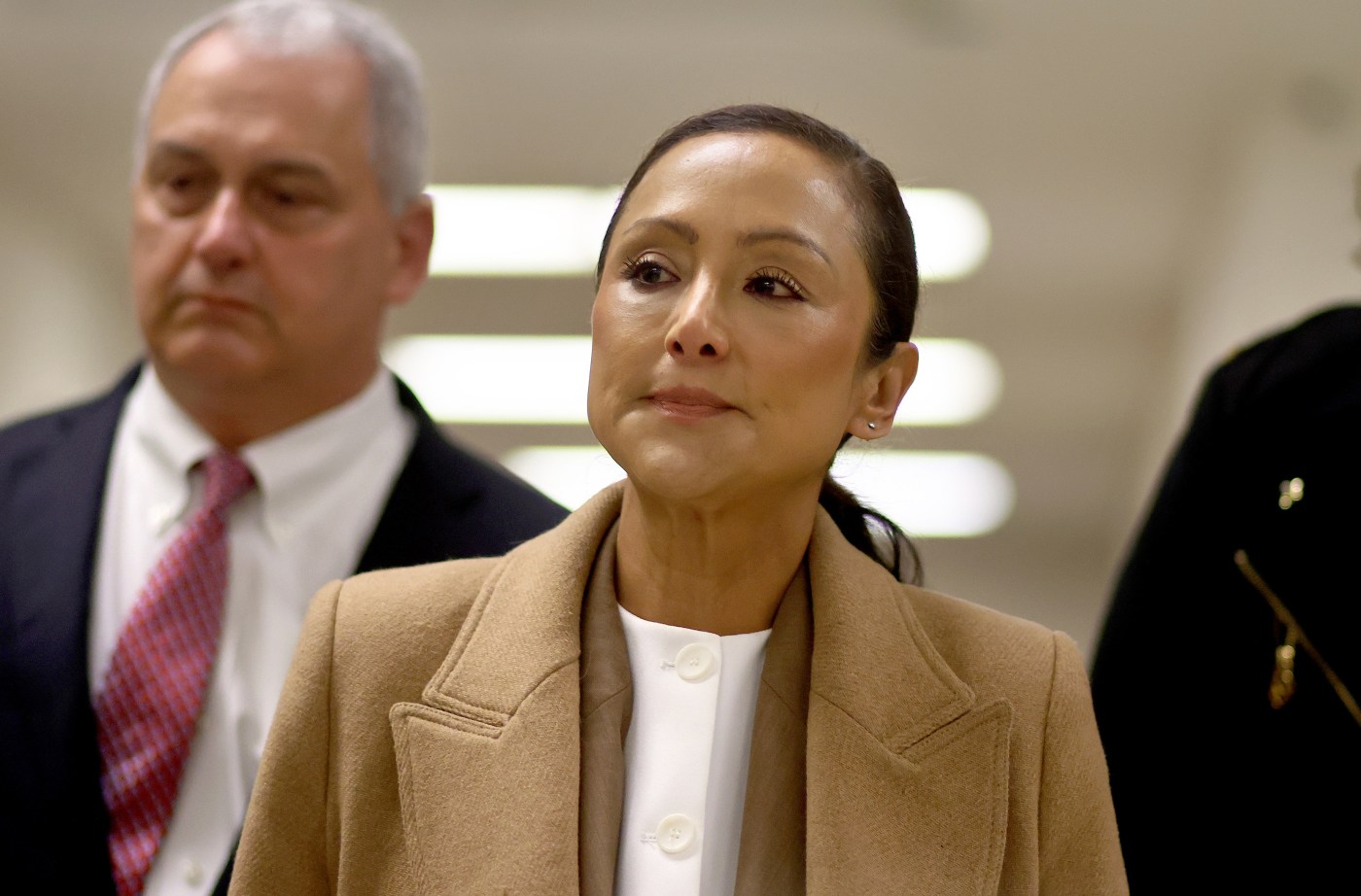
San Mateo County officials said that while they support a public hearing for Sheriff Christina Corpus’ potential removal from office, the decision to open the August proceedings ultimately rests with the sheriff.
In a July 21 letter to the First Amendment Coalition, County Attorney John Nibbelin said the county agrees the hearing should be public. However, he noted that the removal procedures adopted by the Board of Supervisors last May “do not provide a mechanism to overrule the Sheriff’s objection to an open hearing.”
“While I cannot grant your request, the County agrees, as has been noted many times, that the Removal Hearing provided for under Section 415.2 of the County Charter and the Removal Procedures should be open to the public,” Nibbelin wrote to the coalition. “If you do choose to file a lawsuit, the County Attorney’s Office will not oppose it.”
The hearing, expected to take place from Aug. 18-29, stems from the Board of Supervisors’ vote in June to remove Corpus — an authority granted to them by voters in March through Measure A. That decision followed a closed-door pre-removal hearing led by Chief Probation Officer John Keene, who served as the hearing officer.
Retired Santa Clara County Judge James Emerson was mutually selected to serve as the removal hearing officer.
Related Articles
Editorial: Open up secret Sheriff Corpus removal hearings now
First Amendment advocates urge open hearing for San Mateo County sheriff facing removal
ACLU, California city settle lawsuit over artwork protesting police brutality
Dan Siegel, celebrated Bay Area civil rights lawyer who led People’s Park protests, dies at 79
Paramount settles Donald Trump’s ‘60 Minutes’ lawsuit for $16 million
Earlier this month, the First Amendment Coalition sent a letter to the county urging that the hearing be made public, warning that closure would violate the First Amendment and could expose the county to legal liability.
In its earlier letter to the county, the coalition warned that “barring the press and public from the Removal Hearing as Sheriff Corpus has requested would violate the First Amendment right of access to public proceedings.” It said doing so would “undermine a panoply of compelling public interests in administering the Removal Hearing transparently, and needlessly shut San Mateo citizens out of a key phase of a process they voted to begin.”
The nonprofit also sent a separate letter dated July 21 to Corpus’ attorney, Thomas Mazzucco, asking that they withdraw their objection to a public hearing.
In that letter, the coalition asked for a response by Wednesday afternoon indicating whether Corpus would drop her request to close the hearing, “except to the extent that sealing or closure might be permitted under the procedural and substantive First Amendment rules that govern public access, closure, and sealing in civil and criminal court proceedings.”
Corpus and her attorneys did not respond to requests for comment.
The First Amendment advocacy group noted that any request for closure would require public notice and an opportunity for the press and public to object.
Holding the hearing in public — with limited closure only when legally warranted — “would serve not only compelling public interests, but also the interests of your client if she believes that the county’s allegations are without merit,” the coalition wrote, “as open trials serve to enhance the truth-finding function of the proceeding.”
In a June 27 court filing, Corpus’ legal team argued the hearing should be closed “to avoid public dissemination of materials exempt from disclosure,” citing the Peace Officers Bill of Rights, which shields certain personnel records. A document posted by the San Mateo County Superior Court confirms that she has requested a closed hearing.
The coalition contends that those statutes do not override First Amendment protections, particularly in the case of an elected official.
“Neither statute cited by Sheriff Corpus can override the First Amendment right of access that precludes blanket sealing or closure,” the group wrote in its earlier letter to the county, “especially given the total absence of evidence demonstrating a need for either.”
Corpus previously challenged the removal process in court, arguing it was unconstitutional. A judge denied her request for a temporary restraining order. Documents from the pre-removal hearing were later made public after her legal team failed to request that the filings be sealed.
Jim Lawrence, a former Foster City mayor and member of the citizens watchdog group Fixin’ San Mateo County, said the closed-door nature of the proceedings raises transparency concerns.
“While the decision to conduct the hearing in closed session may reflect legal considerations — such as protecting sensitive personnel matters — it raises important concerns about public trust,” Lawrence said. “In matters involving high-ranking public officials, the public has a strong interest in understanding both the process and the facts behind such proceedings.”
He said releasing redacted versions of reports or summaries could help balance confidentiality with accountability.
“These proceedings affect public confidence in law enforcement and public leadership,” Lawrence said. “Restoring that trust will require open communication, demonstrated accountability, and a renewed focus on community engagement.”
Corpus, the county’s first Latina sheriff, faces two simultaneous efforts to remove her from office: one through the Board of Supervisors process authorized by voters, and another through a civil grand jury accusation recently filed in San Mateo County Superior Court. Corpus has denied any wrongdoing and has refused to resign.
If removed by both the civil grand jury process and the Board of Supervisors, Corpus would be the first sheriff in the Bay Area ousted directly by a county board — and is likely the first in California to be targeted by two separate removal processes.